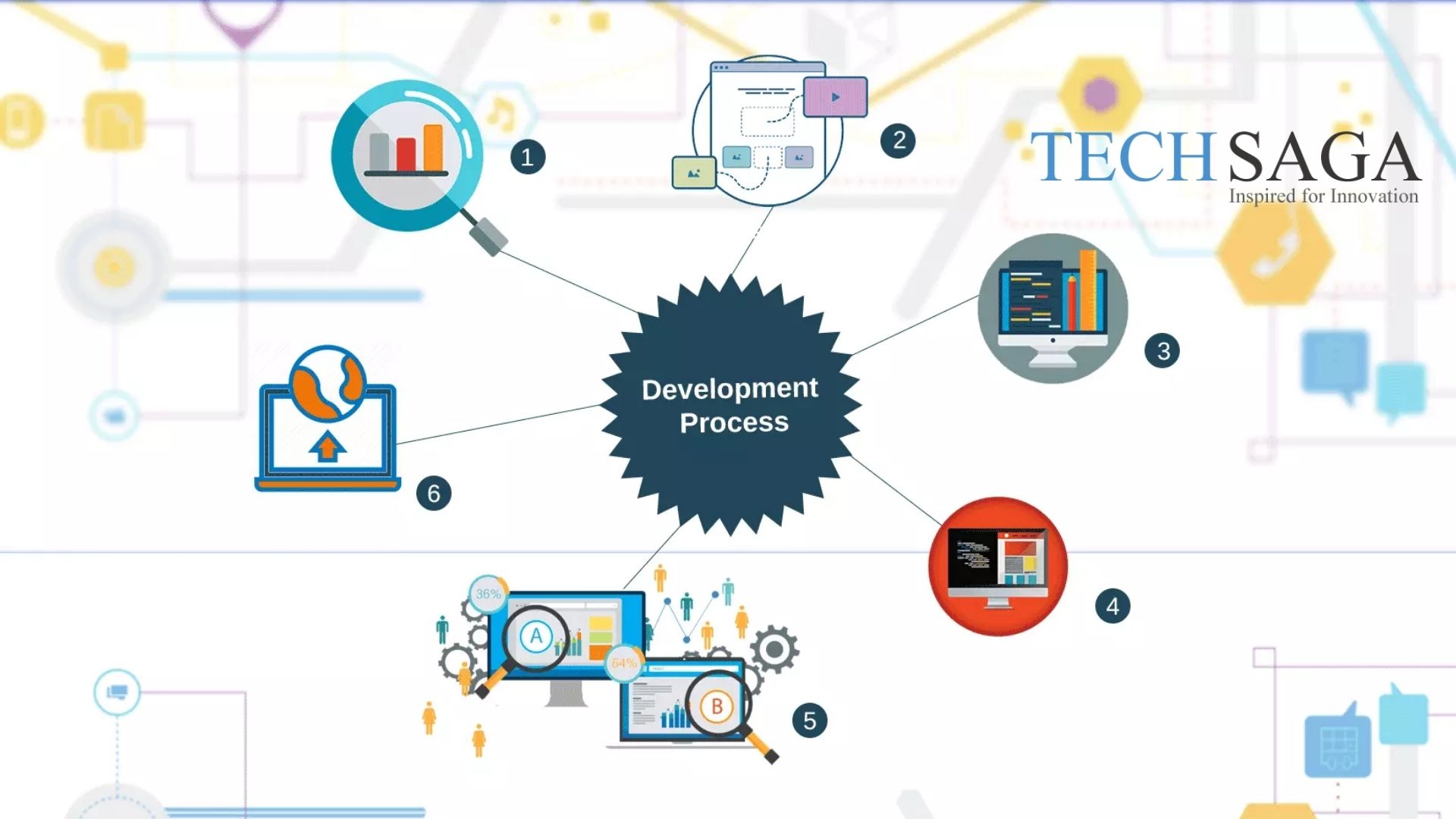Team Techsaga
Gain valuable insights and stay updated with the latest innovations through our engaging blog. Explore trends, technology advancements, and expert opinions to navigate the ever-evolving world of IT.
Application Development being Disruptied by No-Code Platforms?
In Nut Shell
This blog will highlight the importance of the implications of no-code and low-code software in the market whether you’re in the software industry or not. If you’re a developer, you need to adapt with these low-cost modes and bring significant changes. If you’re running a business, new opportunities will open up that will allow you to move faster and be more innovative than ever before. In this application development becomes very crucial.
Let’s Begin:
Amidst the COVID-19 pandemic scenario, business organizations facing a dire need to expedite their digital transformation projects. In a faster way than anticipated and with a constraint of resources. No-code platforms facilitate quick and cost-effective application development in this digital age.
The software industry is going under massive transformation, and the disruption caused by the pandemic hit the software segment in the worst way like other segments of healthcare and manufacturing. Now after Google Docs introduced free cloud-based software and became a new norm, also forcing Microsoft to change its Office 365 business model.
Now, we are on the verge of seeing another evolution in the software industry in the form of low-code and no-code software that promises to make the software itself even more ubiquitous than it was earlier.
Techsaga, a digital marketing company, Creating a marketplace of instantly customizable business process apps including low-code or no-code platforms.
Low and no-code platforms-
Low and no-code platforms are a result of the need for application development and have burgeoned in the past decade. But no-code platforms are gaining attention in the development arena. Low or no-code platforms methodology fits best in this fast-paced world, considering the time and expense involved in an application development, many businesses is opting for cheaper solutions.
No-code platforms are based on a truly agile approach and enable businesses to build a prototype within a day to further deploy quick feedback cycles from end-users, store the suggestions and incorporate them into the application.
The success rate increases as a result, and the process gets completed in days instead of months. Furthermore, no-code platforms are cheap unlike standard CRM, and are based on the SaaS model. Business Organizations only pay what they need and gradually increase it.
Faster Delivery of Applications:
Application development and making it live takes an ample amount of time, depending upon its functionality. Complex programming language stretches the timeline to complete the project in a midway. Furthermore, in a highly competitive environment, developers compromise functionality to provide a seamless product experience for speedy delivery.On the contrary, no-code platforms create and develop applications in a fraction of time. No-code platforms perform faster delivery of applications and are convenient to use by the drag-and-drop interface. In fact non-professionals, developers with less experience can simply drag and drop the required elements to complete the framework.
Flexibility in Development:
During application development through complex programming, coders start work from scratch and it consumes time and effort for multiple developers to integrate different entities and components. In later stages, modifications and updates are required which makes it a labor-intensive process. However, no-code platforms only employ a visual development interface that provides flexibility.
Developers build, test, and release applications consistently with logic that further improves the success rate. On the contrary, no-code platforms can optimize the change management processes and can be done in a shorter duration ensuring minimal feature lag.
Optimization of Internal Resources:
The traditional programming methodology involves manpower increases and the need of hiring professional engineers, which further skyrockets your application development process. Further, outsourcing or freelancing application development has its own repercussions like more time, hidden costs involved in the project. Using no-code platforms eliminates the need of manpower and costs involved.
Apart from this, another benefit of using no-code platforms is its singularity. The seamless integrated application allows users to interact with a single application. Additionally, these platforms are collaborative in nature and ensure you that your data is not scattered across applications and platforms.
Low-Cost Maintenance:
Every running application requires consistent maintenance that involves the company’s funds at regular intervals. Furthermore, to modify the existing app, one developer needs to have a piece of extensive knowledge and deep analysis of the coding performed by the previous developer. Over time, organizations incurs huge costs in terms of application maintenance. However, no-code platforms can simplify the maintenance process of companies by eliminating the need to maintain legacy code. As a result, organizations can build efficient applications at low maintenance costs. Moreover, companies can focus on more productive tasks that are relevant for business growth instead of maintaining these applications.
Bottom-line:
Considering the digital evolution, companies are adopting advanced technology to accelerate and enhance the application development process. Further, organizations need flexible and fast solutions to automated no-code platforms. That can further lower down substantial costs and time while encouraging businesses to scale faster without compromising on quality.
What are the Implications?
Enterprise software providers like SAP and Oracle offer greater customization that can simplify their solutions. Software infrastructure platforms geared enabling organizations for faster application development. So gone are the days of tolerating yearlong enterprise software customizations or hiring a development house to program your application entirely from scratch.
The low-code market is expanding because of huge demand and opportunities. Further, with existing players shifting towards the new low-code model, even when it means giving up short-term services. To get revenue for a longer-term competitive advantage.
Software development company should become intimately familiar with the various tools, APIs, and business models that can power the next-generation tools of the industry. Now is the time to embrace software disruption as it leads to innovation.
Wrapping Up:
In conclusion, it is evident that no-code platforms have emerged as a disruptive force in application development, offering an alternative approach that empowers non-technical users to create applications quickly and efficiently. By eliminating the need for extensive coding knowledge, these platforms democratize the development process and open up new possibilities for innovation. While traditional coding methods still hold their place, the rise of no-code platforms is reshaping the landscape and challenging the established norms of application development. It is an exciting time for the industry as we witness the transformative potential of these platforms and their impact on the future of software development.
Read Also:
Why Businesses Needs App Maintenance and Support Services?




